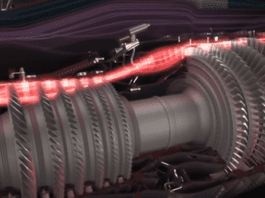This post is also available in:
 עברית (Hebrew)
עברית (Hebrew)
At CES 2025, LG Electronics unveiled its ambitious plans to break into the rapidly evolving humanoid robot market. Traditionally known for its less-complex wheeled service robots, the South Korean tech giant now aims to go head-to-head with the major competitors in the market. LG is determined to join the race with its upcoming AI-driven robot, codenamed Q9.
LG’s Chief Executive, Cho Joo-wan, shared a bold vision at the event, stressing that robotics will play a crucial role in the future of humanity. With a focus on enhancing productivity in various environments, LG’s humanoid robots are designed to interact more naturally with people, leveraging advanced AI to support human tasks at home, in offices, hotels, and more.
The Q9, slated for beta testing in February and March, according to the Korea Economic Daily, will serve as the foundation for LG’s first full-fledged humanoid robot. By September 2025, the Q9 is expected to debut in Korea, potentially available as a subscription service or integrated with LG’s ThinQ smart home platform. This move aligns with LG’s strategy to make humanoid robots more accessible and adaptable to everyday users.
Kim Byung-hoon, LG’s Vice President and CTO, explained that the company is focusing on developing key features such as hand gestures and natural walking patterns. These capabilities will be powered by the cognitive and articulation technologies in the Q9, marking a significant step forward in humanoid robotics.
Further bolstering its AI ambitions, LG recently announced a strategic partnership with Microsoft, aiming to combine their respective AI strengths. Together, they plan to develop AI agents like Q9, which will drive innovations across multiple industries.
With major players like Tesla, Honda, and Boston Dynamics already in the race, the humanoid robot market is becoming fiercely competitive. As LG gears up to launch Q9 later this year, it’s clear that the battle for humanoid robot dominance is just beginning.




